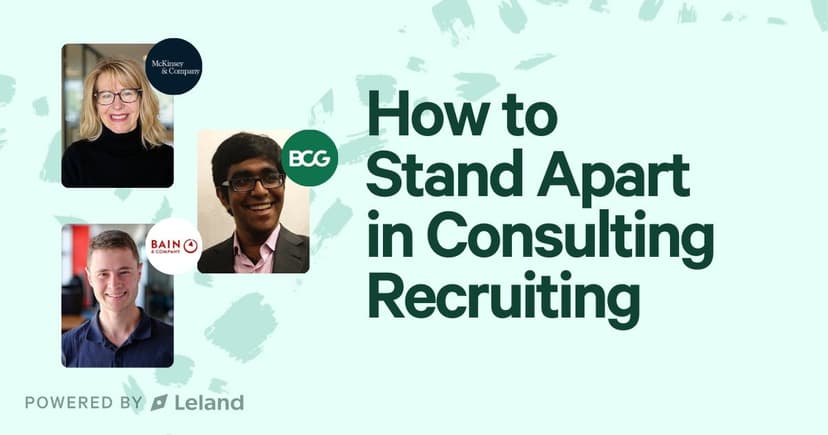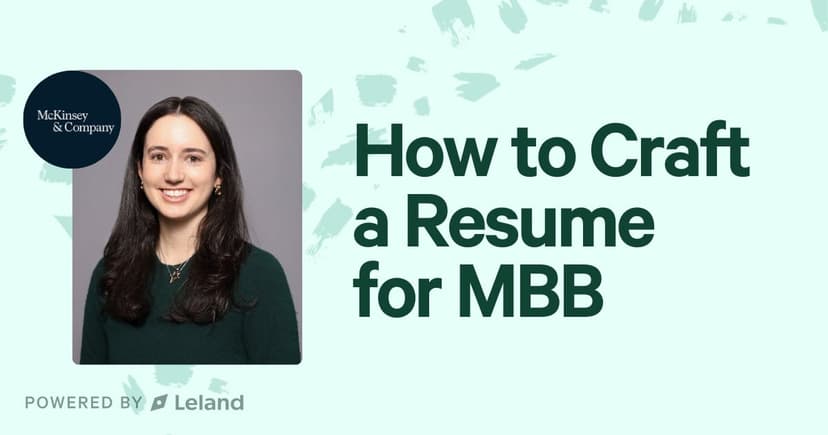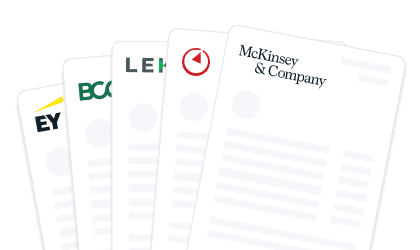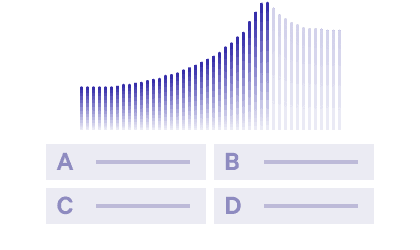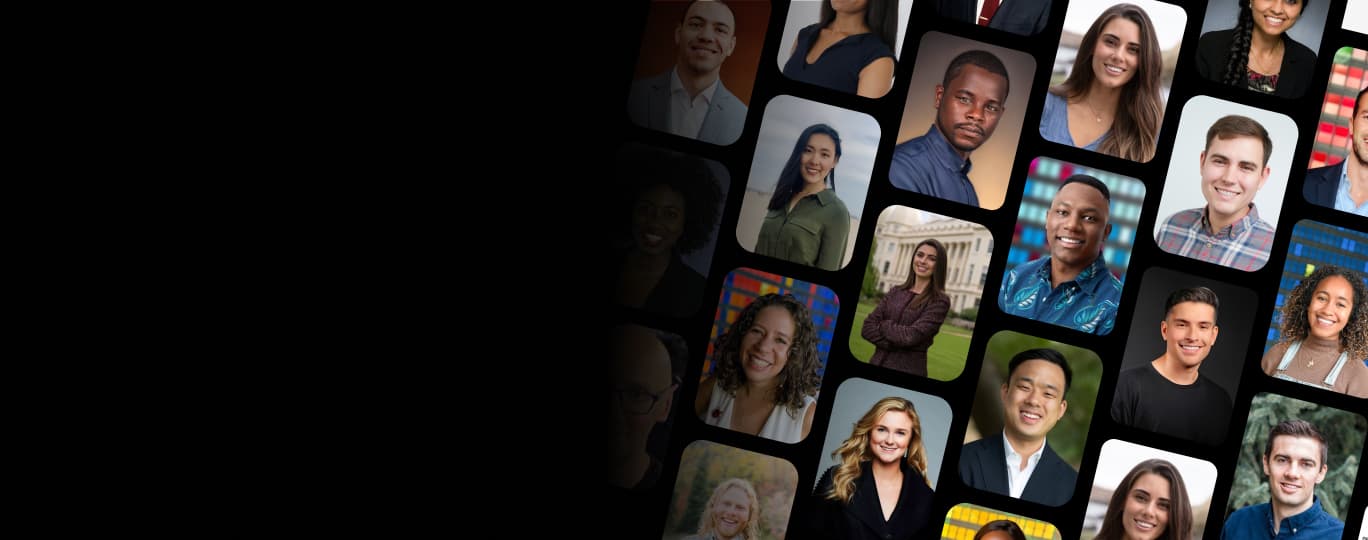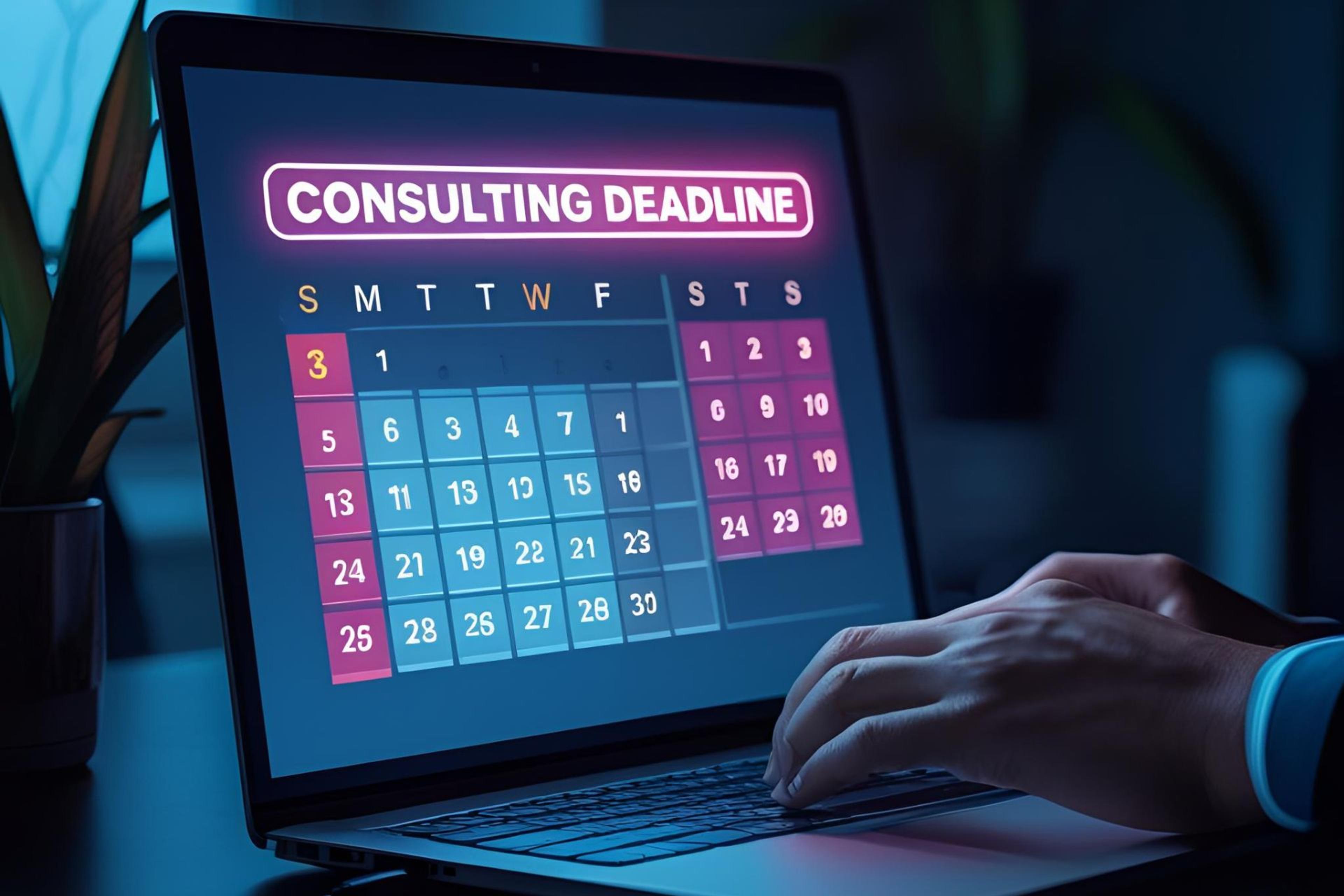The Ultimate 2026 Consulting Interview Prep Guide
Get ready for your consulting interview with our 2026 prep guide! Find expert tips, strategies, and resources to help you ace your interview.
Posted January 7, 2026

Join a free event
Learn from top coaches and industry experts in live, interactive sessions you can join for free.
Table of Contents
Are you gearing up for a consulting interview? You're about to start an exciting journey that could shape your career. Consulting interview prep is no small feat, but with the right approach, you can boost your chances of success. From case study interviews to management consulting case interviews, the process can seem daunting at first glance.
This guide is here to help you navigate the waters of consulting interviews. We'll walk you through everything from case interview preparation to practical tips for solving case studies. You'll learn important frameworks, get insights on how to prepare for consulting case interviews, and even practice with sample cases. Whether you're eyeing a position at a top firm or looking to sharpen your problem-solving skills, this comprehensive prep guide has got you covered. Let's dive in and set you up for success in your upcoming consulting interview!
What Is a Case Interview?
A case interview is a unique type of job interview where you're asked to solve a business problem on the spot, with limited information. It's designed to simulate real-world consulting scenarios and assess your ability to think like a consultant. In these interviews, you'll be expected to analyze a problematic business scenario, perform calculations, and communicate your thought process and decisions to the interviewer.
A case interview is a crucial part of management consulting interviews, especially with top consulting firms like McKinsey, BCG, and Bain. These interviews test not only your problem-solving skills but also your ability to approach complex business challenges with a strategic mindset. Because of this, these types of interviews can sometimes be used as second-round interviews at larger firms. Successful candidates often invest significant time in case interview prep, practicing different types of cases, and honing their ability to structure their analysis quickly. Mastering the case interview is key to breaking into the competitive field of management consulting, as it demonstrates your readiness to tackle the kind of real-world issues consultants face every day.
Types of Case Interviews
Case interviews typically fall into four main categories:
- Profitability: These cases deal with a client's revenue, costs, or overall profitability issues.
- Market Sizing: You'll need to estimate the size of a current market, usually in terms of revenue.
- Market Study: These cases involve analyzing whether a client should enter a new market or address a declining market share.
- Mergers & Acquisitions (M&A): The most complex type, combining elements of profitability, market sizing, and market study.
Format of a case interview
A typical case interview lasts about an hour and consists of four main parts:
- Introduction: The interviewer presents the business problem.
- Structure: You outline your approach to solving the problem.
- Analysis: You work through the problem, asking questions and performing calculations.
- Conclusion: You present your findings and recommendations.
During the interview, you'll need to be proactive, ask relevant questions, and engage in a dialogue with the interviewer. They may guide you in the right direction by asking questions themselves.
Why do consulting firms use case interviews?
Consulting firms rely on case interviews for several reasons:
- Simulation of real work: Case interviews mirror the day-to-day activities of consultants, allowing firms to see how you'd perform on the job.
- Talent assessment: As consulting firms' primary asset is their talent, case interviews help them identify candidates who can excel in the role.
- Structured problem-solving: These interviews test your ability to break down complex problems into manageable chunks, a critical skill in consulting.
- Analytical and communication skills: Case interviews assess your ability to analyze data, think creatively, and communicate effectively under pressure.
- Business acumen: They help firms evaluate your understanding of basic business concepts and your ability to apply them to various industries.
Skills required in a case interview
To succeed in a case interview, you'll need to demonstrate several key skills:
- Structured thinking: The ability to break down complex problems into smaller, manageable components.
- Analytical skills: You'll need to quickly analyze data, identify key insights, and draw logical conclusions.
- Business knowledge: Familiarity with basic business concepts like profitability, market share, and growth rates is essential.
- Quantitative ability: Strong mental math skills are crucial for performing quick calculations and sanity-checking hypotheses.
- Communication: You must articulate your thoughts clearly and concisely, as if presenting to a CEO client.
- Creativity: The ability to think outside the box and generate innovative solutions is highly valued.
- Chart and data interpretation: You'll need to quickly understand and extract insights from various data displays.
By mastering these skills and understanding the format and purpose of case interviews, you'll be better prepared to tackle this challenging but crucial component of the consulting interview process.
Important Case Interview Frameworks
To excel in consulting interviews, you need to master key frameworks that help structure your approach to complex business problems. These frameworks serve as templates to break down and solve case questions efficiently. Let's explore three essential frameworks you should have in your toolkit.
Profitability Framework
The profitability framework is a cornerstone of case interview preparation, as it's one of the most common types you'll encounter. At its core, this framework is based on a simple equation: Profits = Revenues - Costs. While this may seem basic, it provides a powerful starting point for analysis.
To use this framework effectively:
- Break down revenues and costs into their components.
- Analyze each component to identify issues affecting profitability.
- Segment the business to compare different units or time periods.
- Benchmark against competitors or past performance.
Remember, profitability issues can stem from various sources:
- Changes in competitor actions
- Cost structure changes over time
- Differences in geographical performance
By systematically examining these areas, you can pinpoint the root cause of profitability problems and develop targeted solutions.
Market Entry Framework
When tackling market entry cases, you'll need to assess whether a company should enter a new market or introduce new products. This framework helps you evaluate growth opportunities, capabilities, and challenges.
The market entry framework typically addresses three key questions:
- Should I enter?
- Can I enter?
- How to enter?
To structure your analysis, consider these four main areas:
- Market attractiveness
- Competitive landscape
- Company capabilities
- Financial implications
Each area requires you to examine specific factors. For instance, when assessing market attractiveness, look at market size, growth potential, and customer needs. This structured approach allows you to make a comprehensive evaluation of the market entry opportunity.
3Cs and 4Ps Frameworks
The 3Cs and 4Ps frameworks are versatile tools that can be applied to various case types, especially those involving marketing strategy or competitive analysis.
The 3Cs stand for:
- Company
- Customers
- Competitors
These elements help you analyze the semi-fixed environmental factors in a market.
The 4Ps, which form the marketing mix, are:
- Product
- Price
- Promotion
- Place
Each "P" represents a key area of decision-making under a company's control.
When using these frameworks, focus on:
- Defining your product or service clearly
- Developing an appropriate pricing strategy
- Creating an effective promotion plan
- Establishing the right distribution channels
By combining the 3Cs and 4Ps, you can create a comprehensive view of both internal and external factors affecting a business situation.
Mastering these frameworks will give you a solid foundation for tackling various case interview types. Remember, while these frameworks provide structure, it's crucial to customize them to the specific case at hand. Your ability to apply these frameworks flexibly and creatively will set you apart in consulting interviews.
10 Successful Tips for Case Interview Preparation
Preparing for a case interview can be a challenging yet rewarding process. To help you succeed, here are ten essential tips to guide your preparation:
1. Start Early
Begin your case interview prep at least six months before your scheduled interview. This timeline allows you to practice 1-2 out-loud interviews per week, along with math and structure drills in between. Starting early gives you ample time to refine your skills and build confidence.
2. Learn the Theory
Familiarize yourself with the fundamental concepts and frameworks used in consulting. Understanding these theoretical foundations will help you approach cases more effectively and navigate the entire case interview process with greater ease.
3. Develop Your Business Intuition
Gradually build your business acumen by staying informed about current market trends and industry developments. Developing good business sense skills will help you make more insightful observations during your case interviews, enabling you to think like a management consultant and provide deeper insight into complex problems.
4. Sharpen Your Math Skills
Case interviews often involve quantitative analysis. Brush up on your mental math skills to work with numerical data more efficiently. Practice quick calculations and estimations to improve your speed and accuracy, giving you an edge in solving cases during the interview process.
5. Practice, Practice, Practice
The saying "practice makes perfect" holds true for case interviews. On average, successful applicants complete 30 to 50 practice cases. Remember, the goal isn't just to solve the case but to master the process of approaching and analyzing business problems.
6. Simulate Real Interview Conditions
Case interviews are verbal tests as much as they are mental challenges. Practice solving cases out loud to simulate the actual interview environment. This approach will help you improve your communication skills and ability to think on your feet.
7. Master the Structuring Process
Structure is crucial in case interviews. Take two minutes to structure your approach and two minutes to present it at the beginning of each practice case. Use a timer to keep yourself accountable and always end with a hypothesis. This disciplined approach will ensure you tackle each problem in a structured manner, which is key to impressing your interviewer in your first consulting interview.
8. Seek Expert Help
Consider working with an expert coach to accelerate your preparation. Coaches who have succeeded as candidates and served as interviewers can provide valuable insights and feedback. Their guidance can potentially cut the number of necessary practice cases in half.
9. Practice with a Partner
Partner with other aspiring consultants to keep each other accountable. Giving and receiving feedback helps improve self-awareness and refines your approach. This collaborative practice also mimics the teamwork aspect of consulting work.
10. Don't Neglect Personal Fit
While focusing on case preparation, don't forget about the personal fit aspect of the interview. Prepare for behavioral questions and be ready to discuss your background, motivations, and experiences that make you a strong candidate for consulting.
Remember, the case interview is designed to assess various skills valued in consulting. Interviewers are looking for candidates who can think logically and strategically under pressure, demonstrate strong communication skills, and exhibit the ability to work with a team. By following these tips and dedicating time to thorough preparation, you'll be well-equipped to tackle your case interview with confidence.
10 Essential Steps to Solve a Case Study
Mastering case studies is crucial for success in consulting interviews. Here are ten essential steps to help you navigate and solve case studies effectively:
- Listen Actively: Pay close attention to the interviewer's words, tone, and body language. Less than 10% of communication is through words alone, so use your ears, eyes, and brain to fully understand what's being asked.
- Clarify the Objective: Ensure you understand the main question or problem. Don't hesitate to ask for clarification or additional information if needed.
- Structure Your Approach: Take a moment to organize your thoughts. Create a clear outline of your main points before diving into the analysis.
- Articulate Your Thoughts: When presenting your ideas, clarity and conciseness are key. Start by articulating your main message, followed by 2-3 supporting arguments. This top-down communication approach is essential in consulting. Use signposting to announce your ideas before delving deeper, and number your points to create clarity in your argumentation.
- Analyze the Data: Carefully examine any provided data or information. Look for patterns, trends, and key insights that can help solve the case.
- Develop Hypotheses: Based on your initial analysis, form hypotheses about potential solutions or root causes of the problem.
- Test Your Hypotheses: Use the available data and information to validate or refute your hypothesis. Be prepared to adjust your approach if needed.
- Active Listening: Throughout the case, practice active listening. This involves fully engaging with the interviewer, asking clarifying questions, and paraphrasing to ensure accurate comprehension. Active listening allows you to grasp nuances, tailor your responses effectively, and demonstrate your attentiveness.
- Confident Body Language: Your non-verbal communication speaks volumes. Maintain good posture, as it contributes positively to your presentation as a candidate. Make effective eye contact, which should last about two to four seconds, to show engagement and confidence. For video interviews, look directly at the camera to create a sense of connection.
- Synthesize and Conclude: Summarize your findings and present a clear, actionable recommendation. Ensure your conclusion directly addresses the initial problem or question.
Perfect Your Communication Skills
Effective communication is the cornerstone of success in consulting interviews. Here are some key aspects to focus on:
- Clarity and Brevity: Express your ideas in the simplest way possible without omitting critical details.
- Structured Thinking: Organize your thoughts logically before speaking. Use a top-down approach, presenting your conclusion first, followed by supporting arguments.
- Engagement: Turn your communication into a dialogue by asking questions and showing genuine interest in the discussion.
- Adaptability: Adjust your communication style to suit different situations and audiences.
Remember, actions often speak louder than words. Ensure alignment between your verbal and non-verbal communication. If your body language contradicts your words, it can undermine your message. Practice these skills in everyday conversations to make them natural during your interview.
By following these steps and perfecting your communication skills, you'll be well-equipped to tackle case studies in your consulting interviews. Remember, the goal is not just to solve the case but to demonstrate your analytical thinking, problem-solving abilities, and effective communication skills throughout the process.
Bonus: Follow These Steps For Your Case Interview
Focus on the main subject
When approaching your case interview, it's crucial to stay focused on the primary objective. Don't get sidetracked by the interview format or the interviewer's approach. Instead, concentrate on understanding and solving the business problem at hand. Maintain a clear head and structure your thoughts effectively to tackle the case.
Keep demonstrating your overall goals
Throughout the interview, consistently showcase your problem-solving skills and analytical abilities. Remember that consulting firms like McKinsey, Bain, and BCG are looking for candidates who can think logically and strategically under pressure. Demonstrate your capacity to work with a team and communicate effectively, as these are highly valued skills in consulting and essential for acing the case interview prep.
Demonstrating cultural fit
While solving the case is important, don't forget to demonstrate your cultural fit with the company. Engage the interviewer in a dialog, showing not only your business judgment but also your communication and people skills. This gives insight into how you might interact with future clients and colleagues.
Ask the right questions
At the beginning of the case, take time to develop a deep understanding of the problem. Ask clarifying questions about the business model and your objective in the case. However, be concise and avoid unnecessary questions that might raise doubts about your ability to work efficiently under pressure. Practicing with case interview examples during your prep will help you master this skill.
Form a hypothesis with articulate information
Don't rush to state a hypothesis at the beginning when you may still have incomplete information. Get a good sense of the case's environment and ask sensible follow-up questions. Only then should you frame a structure and formulate a hypothesis. This approach is vital in the case interview format used by top firms.
Use data for analysis
Avoid making wild guesses during your case interview. Ensure your claims are backed up by facts and remain calm when presented with new information. Consultancies will closely observe how you make use of new data and incorporate it into your hypothesis.
Practice your structure
The structure is a critical aspect of the case interview. Craft an issue tree as the overall foundation for your structure, ensuring it's MECE (Mutually Exclusive, Collectively Exhaustive). Prioritize high-impact issues that will create value for your client, and use the Pyramid Principle to structure your conclusion.
Practice your fit-frameworks
While case frameworks can be helpful in guiding your analysis, avoid the temptation to force-fit standard frameworks to your case. Each case, especially market entry cases, is unique and requires a customized framework that is adapted to the specific problem, company, and industry. Tailoring your approach will demonstrate your ability to think critically and flexibly in diverse situations.
Keep a calm composure
If you get stuck during the interview, don't panic. Take a deep breath, grasp the big picture, and recap what you've learned so far. Think out loud and take the interviewer along with your thinking process.
Don't be cocky, but don't be too modest
Strike a balance between confidence and humility. Consulting is as much a people's job as it is an analytical one. It's important for the client to feel that you know what you're doing, so project confidence without appearing arrogant.
Take note of important details
Pay close attention to the information provided and take notes. When the interviewer asks if you have any questions before proceeding, always say yes. Summarize the situation and problem at hand, and ask clarifying questions if something was unclear. This demonstrates your listening skills and ensures you understand the case you're about to solve.
By following these steps and practicing consistently, you'll be well-prepared to tackle your case interview with confidence and demonstrate your potential as a successful consultant.
Read: The 15 Most Common Consulting Interview Questions — With Answers
Practicing with these Case Interview Examples
To excel in your consulting interview, practicing with sample cases is essential. It helps you get comfortable with the types of questions asked and boosts your confidence. Let's see some sample cases from top consulting firms to help you prepare effectively.
McKinsey Sample Cases
McKinsey offers a variety of sample cases on their website to help you prepare for case interviews. These cases cover diverse industries and business challenges, giving you a comprehensive understanding of what to expect. Here are some examples:
- Beautify: Evaluate whether a global beauty products company should train in-store beauty consultants to use virtual channels for customer connections.
- Diconsa: Assess the use of the Diconsa network in Mexico to provide basic financial services to the rural poor for the Gates Foundation.
- Electro-Light: Design a product launch for a flavored sports drink with reduced sugar content for a major beverage company.
- National Education: Diagnose problems and assess ways to improve and transform a country's national education system.
- Talbot Trucks: Determine whether to invest in the production and sale of electric trucks for a leading European truck manufacturer.
- Shops Corporation: Improve internal diversity, equity, and inclusion efforts for a US-based retail company.
- Conservation Forever: Prioritize large-scale biodiversity protection projects for a conservation NGO.
These cases cover a wide range of industries and problem types, helping you develop a versatile approach to case solving.
BCG Sample Cases
Boston Consulting Group (BCG) also provides sample cases to help you prepare for its interview process. Here are some resources and cases from BCG:
- Foods Inc. and GenCo case samples: Available on the BCG website.
- Chateau Boomerang written case interview: A written case sample provided by BCG.
- BCG case interview guide: A comprehensive guide to help you prepare for BCG case interviews.
- Written cases guide: Specific guidance on tackling written case interviews.
- BCG live case interview with notes: A sample of a live case interview to give you a feel for the process.
- BCG mock case interview: Public sector case with an ex-BCG associate director.
- BCG mock case interview: Revenue problem case.
These resources provide valuable insights into BCG's interview process and the types of cases you might encounter.
Read: How to Prepare for Boston Consulting Group Management Consulting Case Interviews?
Bain Sample Cases
Bain & Company also offers sample cases to help candidates prepare for their interviews. Here are some examples:
- CoffeeCo practice case: Help a friend determine whether opening a coffee shop is a good idea.
- FashionCo practice case: Advise a player in the fashion market on why it has experienced declining revenues for the past five years.
- Associate Consultant mock interview video: Available on the Bain website.
- Consultant mock interview video: Another resource to help you visualize the interview process.
- Written case interview tips: Guidance on tackling written case interviews.
By practicing with these sample cases from McKinsey, BCG, and Bain, you'll gain valuable experience in tackling various business problems and improve your case-solving skills. Remember, the key is not just to solve the case but to demonstrate your structured thinking, analytical abilities, and communication skills throughout the process.
Read: Bain Case Interviews: A Comprehensive Preparation Guide
Last-Minute Preparation Tips
As your consulting interview approaches, it's crucial to focus on final preparations that can make a significant difference in your performance. Here are some essential tips to help you excel in your upcoming case interview.
Managing Stress
Stress management is a critical aspect of interview preparation. Recognize that feeling nervous is normal, but excessive stress can hinder your performance. Common symptoms of interview stress include a racing heartbeat, sweating, and difficulty breathing. To combat these feelings:
- Practice positive self-talk: Remind yourself of your qualifications and past successes.
- Visualize positive outcomes: Picture yourself confidently shaking hands with the interviewer at the end of a successful interview.
- Reframe your perspective: View the interview as a joint problem-solving session rather than a one-sided assessment.
- Engage in physical exercise: Go for a walk or run to help relax your body before the interview.
Remember, your interviewers want you to succeed. They're not trying to trip you up but rather to assess your potential as a consultant.
Time Management
With limited time left before your interview, efficient time management is crucial. If you're struggling to find time for preparation due to work commitments, consider these strategies:
- Prioritize your preparation: Focus on key areas such as case frameworks and mental math.
- Use available resources wisely: Review Case Interview Secrets videos or practice with the Look Over My Shoulder® program, which focuses on presenting mock case interviews to work through.
- Practice daily: Even 10 minutes of mental math practice can make a difference.
If possible, try to allocate more time for preparation. Some candidates even consider taking unpaid leave to focus on interview preparation.
Post-Interview Reflection
After your interview, take time to reflect on your performance. This process can be valuable for future interviews and potential follow-ups:
- Immediately after the interview, jot down key points and areas for improvement.
- Analyze your responses, noting any that were unclear or incomplete.
- Consider what you learned from the interview experience.
If required, prepare a post-interview reflection within 24 hours, focusing on clarifying points and adding relevant information not mentioned during the interview.
Day Before Checklist
The day before your interview is crucial for final preparations:
- Review your resume and be prepared to discuss any points mentioned.
- Go through your case frameworks one last time.
- Prepare questions for the interviewer about the firm and the role.
- Get a good night's sleep to ensure you're well-rested for the interview.
- Lay out your interview attire to avoid last-minute stress.
Managing Interview Stress
On the day of the interview, use these strategies to manage stress:
- Arrive early to allow time to compose yourself.
- Take deep breaths to calm your nerves.
- Maintain a friendly demeanor and smile genuinely to create a positive atmosphere.
- If you stumble, don't panic. Frame it positively: "Interviewing can make me a bit nervous, but I'm very committed to my work and confident in my abilities".
- Bring a notebook to jot down questions and take notes during the interview.
Remember, the interview is just one step in your broader professional journey. Each interview, regardless of the outcome, is an opportunity for growth and learning. By implementing these last-minute preparation tips, you'll be well-equipped to showcase your best self and increase your chances of success in your consulting interview.
Land Your Dream Consulting Job With the Help of an Expert
Trying to enter the world of consulting is no small feat. That’s why at Leland, we have a broad network of world-class coaches who know what it takes to get into a consulting job and are ready to help review your resumes, conduct practice interviews, and give you refreshers on key skills needed to land the job. Browse our expert coaches here and find the highest-rated ones below.
The Bottom Line
Mastering the art of consulting interviews requires dedication, practice, and a strategic approach. This comprehensive guide has an impact on your preparation journey, providing valuable insights into case interview frameworks, practical tips, and sample cases from top firms. By following the advice and strategies outlined, you're better equipped to tackle the challenges of consulting interviews and showcase your problem-solving abilities.
The key to success lies not just in solving cases but in demonstrating your structured thinking, analytical skills, and effective communication throughout the process. As you continue to prepare, keep in mind that each interview is a chance to learn and grow. With thorough preparation and a positive mindset, you're well on your way to making a strong impression in your consulting interviews and taking a significant step towards your career goals.
Ready to Turn Preparation into an Offer?
If you want structured feedback, real case practice, and insider guidance from people who have actually cracked McKinsey, BCG, and Bain, do not prep alone. Work 1-on-1 with our expert coaches to sharpen your cases, tighten your fit answers, and walk into interviews confident and prepared. Explore them all here and start preparing the right way today.
Looking to break into consulting firms? Check out these expert resources dedicated to helping you get into the top consulting firms:
- 50+ Case Interview Questions and Examples From Top Firms
- Mastering Consulting Cases: A Step-by-Step Approach
- How to Answer "Tell Me About Yourself" in Consulting Interviews
- How to Answer the "Why Consulting" Interview Question
- How to Answer the "Why BCG?" Behavioral Interview Question
FAQs
How should I begin my preparation for a consulting interview?
- To effectively prepare for a consulting interview, follow these seven key steps: Start by asking insightful questions early on, engage actively with your interviewer, focus on structuring your responses clearly, familiarize yourself with common case archetypes, sharpen your numerical skills, stay updated on industry trends, and practice extensively, preferably with a partner.
What is the typical duration required to prepare for consulting interviews?
- Preparing for consulting interviews usually requires about two to three months of intensive practice. This preparation is comprehensive as case interviews are challenging; they assess a broad set of abilities, including analytical problem-solving, behavioral and social skills, and practical knowledge, all of which necessitate considerable time to develop.
What does the 3CP framework entail in consulting?
- The 3CP framework in consulting focuses on four key areas: consumer, company, competition, and products. It's a versatile approach often used to structure the process of solving case studies, starting with understanding the consumer's needs and perspectives.
What can I expect during a consulting case interview?
- A consulting case interview typically involves solving a business case study through a discussion with your interviewer. You'll be presented with a business problem and asked to provide advice as if you were consulting for a client, which could be a fictional business or organization seeking strategic guidance.



